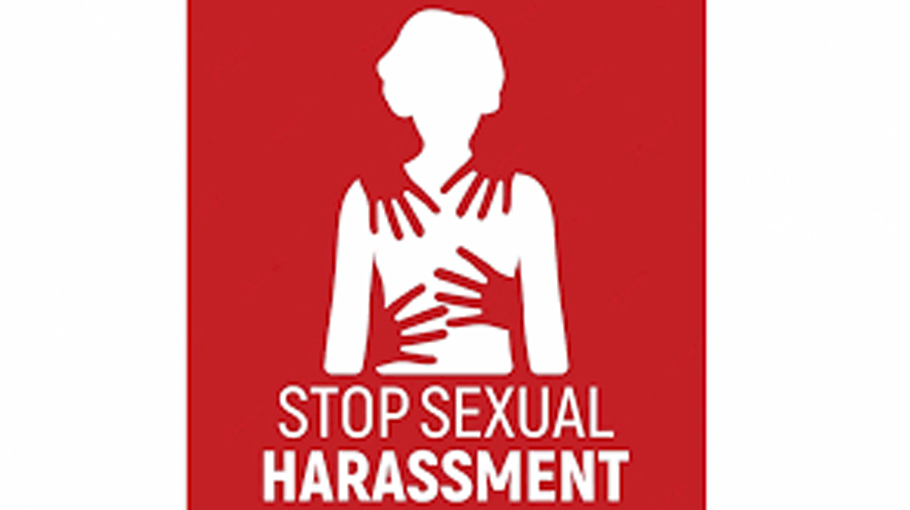Combating sexual harassment in universities

Sexual harassment occurring in public institutions has a detrimental impact on the educational experience since it undermines the core concepts of safety, equality, and respect. The presence of fear and intimidation hampers students' capacity to fully immerse themselves in academic endeavors and actively partake in campus activities since they constantly face the imminent risk of harassment. The adverse consequences go beyond the individuals directly affected, impacting the whole university community by undermining confidence, harming relationships, and sustaining a climate of silence and immunity.
Victims of sexual harassment may experience significant psychological and emotional repercussions, including feelings of worry, sadness, and a loss of personal agency. Furthermore, it sustains detrimental gender stereotypes and disparities, strengthening the idea that specific persons have the right to exercise authority and dominance over others. In essence, sexual harassment occurring in public institutions not only infringes on the rights and dignity of individuals but also weakens the fundamental concepts of inclusion and diversity that are crucial for a flourishing academic atmosphere.
The recent event involving the untimely demise of Abontika, a student at Jagannath University, has once again highlighted the widespread problem of sexual harassment in our educational institutions. The story of Abontika, characterized by the claimed instances of sexual harassment she experienced both online and offline, as well as the callous reaction from university authorities, highlights the pressing necessity to confront the harmful culture of silence that surrounds such situations.
The case statement provided by Abontika's mother vividly portrays the distressing account of the mistreatment she endured from both a fellow student and an assistant proctor. The victim's decision to express her thoughts, only to encounter verbal mistreatment and apathy, clearly highlights the obstacles that victims have when pursuing justice. It demonstrates a more extensive inadequacy of our educational institutions to offer a secure and encouraging atmosphere for its students.
The occurrence of sexual harassment in universities is not a recent occurrence, however, the extent to which it happens and the lack of consequences for the perpetrators are highly troubling. It not only diminishes the welfare and educational endeavors of victims but also sustains a climate of apprehension and quietude that empowers offenders to persist in their harmful actions without consequences.
The Abontika case serves as a clear reminder that effectively dealing with sexual harassment necessitates a comprehensive and multifaceted strategy. Above all, it requires a firm dedication from university administrations to provide top priority to the safety and respect of its students. This entails enacting explicit and strong measures to combat sexual harassment, offering extensive instruction to teachers and staff on preventing and addressing such occurrences, and creating confidential channels for reporting that safeguard the identity of victims.
Moreover, it is crucial to cultivate a culture of responsibility where wrongdoers are held liable for their deeds. This necessitates expeditious and unbiased inquiries into accusations of harassment, thereafter accompanied by suitable punitive actions for individuals shown to be culpable. Additionally, it involves establishing a conducive atmosphere for those who have experienced harm, where they feel empowered to report incidents without apprehension of reprisal or being held responsible for the wrongdoing.
However, addressing sexual harassment cannot be primarily the responsibility of university administrations. The active participation of students, teachers, and the wider community is necessary. All of us must be watchful in confronting detrimental attitudes and actions, denouncing harassment whenever we observe it, and supporting victims in a unified manner.
The demonstrations that occurred at Jagannath University and in different areas of Cumilla in response to Abontika's killing serve as a strong indication of the collective anger and call for justice. It is encouraging to witness individuals uniting to elevate the voices of victims and ensure that abusers and institutions are held responsible for their acts.
The capture of the two alleged culprits by the police is a significant stride towards achieving justice. Law enforcement authorities must now prioritize conducting a comprehensive and open inquiry into the incident, demonstrating sincerity and honesty. Rapidly uncovering the truth is crucial, not only for providing a resolution to the victim's family but also for expediting the legal proceedings. The expeditious and effective progression of the legal process is crucial, guaranteeing prompt accountability for the perpetrators of the abhorrent act.
Nevertheless, our efforts extend beyond mere demonstrations and calls for justice. We must seize this opportunity to catalyze significant transformation. This entails promoting structural changes that tackle the underlying factors of sexual harassment, such as gender disparity and asymmetries in power. It involves allocating resources to educational and awareness campaigns that encourage respectful relationships and the need to obtain consent. It entails promoting a culture characterized by empathy and solidarity, where each individual in our society is esteemed, honored, and secure.
As we grieve for Abontika and several other victims of sexual harassment, let us also renew our dedication to combatting this widespread and harmful type of violence. Let us commemorate their legacy by collaborating to establish a future in which every person may freely pursue their studies and aspirations without the fear of being subjected to harassment and mistreatment. The era of being silent and inactive has come to an end. Now is the moment to express our opinions, take action, and insist on transformation.
The writer is a Professor in the Department of Public Administration at the
University of Rajshahi.




